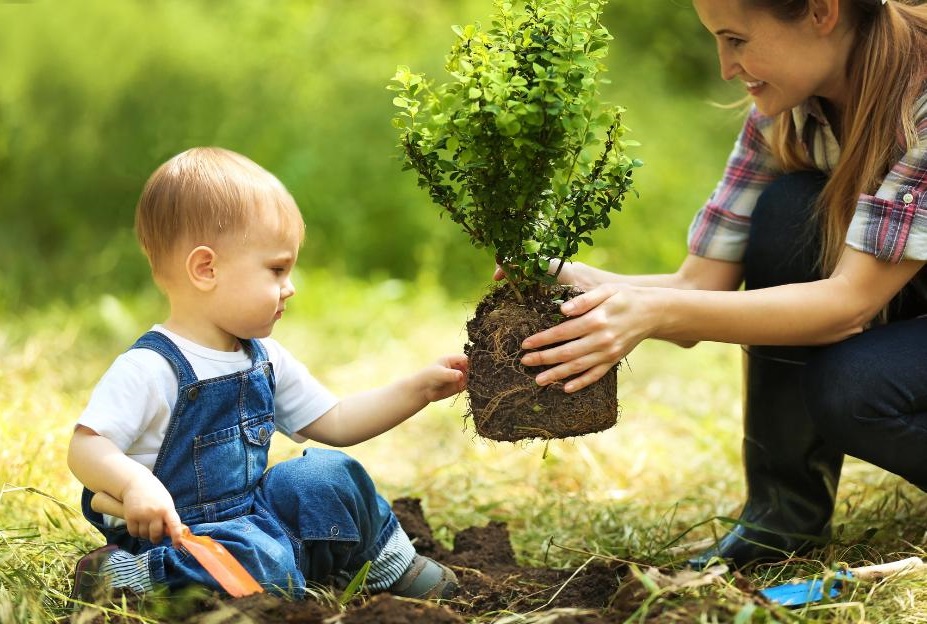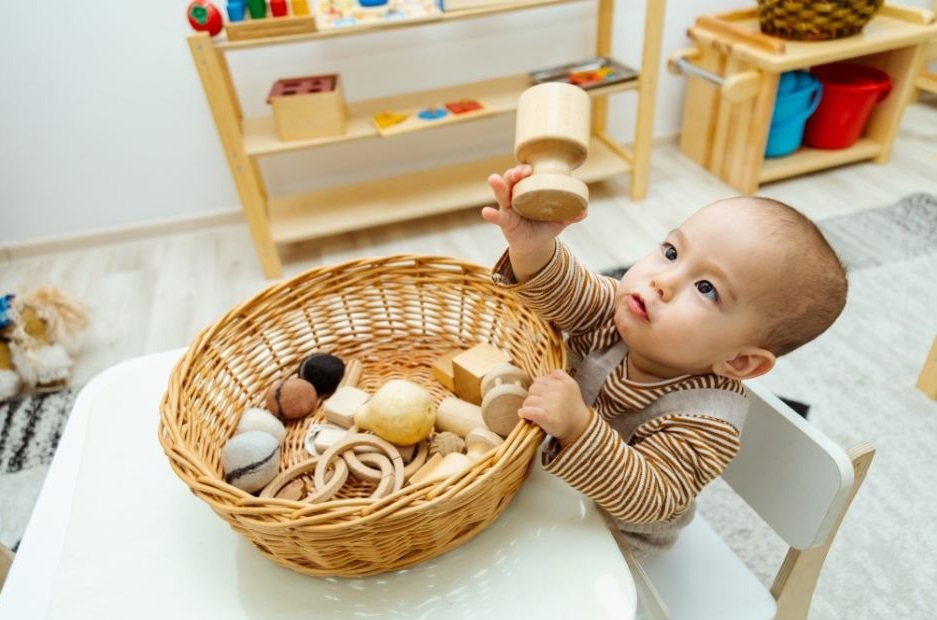We often hear the phrase ‘practical life’ and sometimes wonder does the name speak for itself? Well in a nutshell practical life activities are the activities of everyday life in all aspects surrounding the child. These opportunities allow the child to gain knowledge through real life experiences and accomplish life skills in a purposeful way. The activities can also be culturally and environmentally specific so they look different in every child’s home and space and that is the beauty of it.
Why is it such a key part of Montessori?
Through practical life activities children gain a strong sense of being and belonging through the participation in daily life alongside us. Usually it is an adult’s world but these activities allow the child to partake and be a contributing member of their community (whether it is their family, home, or wider community), learning about their culture, society and what it means to be human! This includes their interactions with others, being in service of others and their contribution to society and this world as a whole. They also develop children’s more complex motor skills, sequences, independence, self-belief and development of concentration just to name a few.
“When we speak about the behaviour of men and animals, we refer to their purposeful movements. This behaviour is the centre of their practical life. It is not just the practical life in a house, cleaning rooms, watering plants, etc., that is important, but the fact that everyone in the world must move with a purpose and must work, not only for himself but also for others. It is strange that man’s work must also be work in service of others…” – Maria Montessori London Lectures 1946
Okay…a bit deep? Let’s break it down! The four main areas of practical life include the following:
- Care of Self: This includes tasks like hand washing, brushing hair, brushing teeth, getting dressed, nose wiping, fastening shoes, food preparation, folding laundry etc. Now it is neverjust dressing or just learning to brush teeth, these can be really purposeful moments that take great effort especially from a baby or toddler to complete, giving them an opportunity to follow a complex motor sequence, independently, in order to fulfill his or her own desires and needs.
- Care of the Environment: This includes things like watering a plant, sweeping, mopping, feeding pets and looking after animals, window washing (which toddler doesn’t LOVE using a spray bottle), flower arranging, setting the table, dusting, gardening, cleaning up spills etc. They really do learn to appreciate and have respect for their space on top of the fact that they just love contributing to all of these activities giving them a sense of fulfillment.
- Grace & Courtesy: These are things like how to ask for help, how to greet people, how to politely interrupt a conversation, taking turns, table manners, waiting patiently (a tough one for any toddler), offering and serving food, practicing kindness, how to cover a cough, how to comfort someone etc. Many of this comes from modeling and collaboration with adults especially in the first 3 years of a child’s life.
- Control of Movement: These are activities that allow for practicing more complex motor skills like using tongs, spoons, tweezers, droppers, carrying a tray with jugs on it, transferring, scooping, stacking, walking the line, jumping, running, threading, hammering, using a screwdriver etc. For infants and toddlers this would look like pulling to stand, crawling, walking, hopping with two feet, scooping, using tongs etc.

“A three-year-old educated according to Montessori pedagogy, becomes a master of his hand and undertakes with a joy a variety of human activities. These activities allow him to develop the power of concentration.” (San Remo Lectures, p. 27)
Expectations vs. Reality
Practical life is a key component of the Montessori pedagogy and can be implemented in your home with found materials a lot of the time. However I feel as though social media and clips of young children being independent puts pressure on parents and this expectation on themselves that their 14 month old needs to independently be able to brush their teeth or sit at a table to eat without getting up or be able to make a pizza on their own by age 2! Let me tell you the reality is that most of the topping goes on one spot, the toothbrush gets chewed more than teeth actually brushed and a toddler will get up from their table a few times during a meal or snack.
Explore the fundamentals of Montessori parenting with this free video by Sylvia Arotin, offering insights and strategies to empower and educate your child.
Guess what? That is normal and perfectly okay, through consistency and repetition these skills will develop over time and really it is the small wins that you need to take note of and celebrate! Like your child pouring half the water from the jug over to the other, or grabbing a towel to wipe the spill even if you had to dry it off yourself, or hand you just one dish from the dishwasher…these small moments you need to look out for. It is really important to start with small achievable tasks like handing them a wooden spoon to mix or holding a small cup or plate with two hands before expecting greatness! Start slow!
This is just the first in our series of practical life blogs to come so stay tuned as we explore in depth what this will look like in your home and how to help your child become more independent, build their self- belief and gain life skills that will not just serve themselves but everyone around them.
For more information join our Facebook Montessori at Home 0-3 years https://www.facebook.com/groups/Montessoriathome0to3years/






